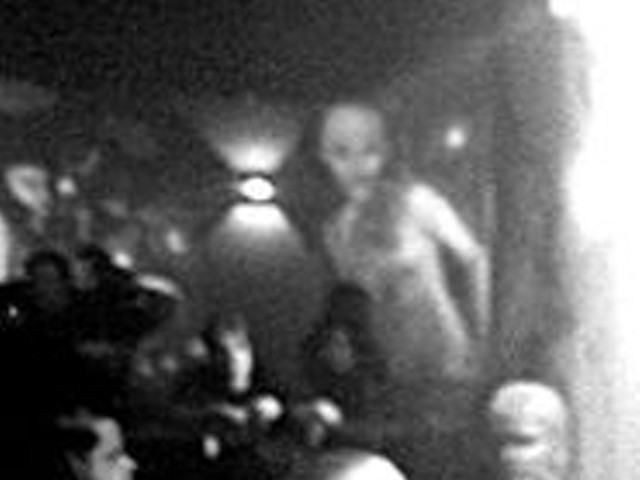Both pieces use the device of unseen interviewers to spur the revelatory monologues. In The Moonshot Tape, Byers plays Diane, a short-story writer who has returned to her small Missouri hometown to move her mother into a nursing home. The clichéd questions from a high-school newspaper reporter open Diane's raw wounds. Byers -- an intelligent, excellent actress -- draws us in as she tells the story of Diane's abuse at the hands of her stepfather and the unsatisfying revenge she extracted. Under Gregory's direction, Byers accomplishes the difficult task of riveting our attention from start to finish with a minimum of movement or histrionics, creating tension by repressing her emotions, as Diane has obviously had to do all her life.
In the less developed script A Poster of the Cosmos (originally presented by the City Players in 1996 under Tim Steiner's direction and re-created here) Gregory's Tim, a baker, finds himself in handcuffs in a police interrogation room. As the circumstances of his arrest are slowly revealed, Tom tells a heartbreaking story of the death of his lover from AIDS and the crippling sadness that drove him to an insane, loving act. Gregory gives a well-modulated performance -- sometimes loud and brash, sometimes quiet and introspective. He is hindered by the stark lighting design, which backlights him throughout the entire piece using only the stage work lights. If this was a technical error, it was unfortunate; if it was an artistic choice, it's one made at the expense of the audience, who couldn't make out Gregory's features, much less the subtleties of his performance.
The fine performances put a human face on two important social issues (a portion of the proceeds benefits Childhelp USA and Broadway Cares), but the double dose of particularly heavy subject matter leaves one weary and sad at the end of the evening. City Players sits on the brink of moving from an ambitious community theater to a semiprofessional company and has been using the one-person format to ease into a full schedule. We look forward to a production in which these capable actors actually talk to each other in a play that both challenges and entertains.





